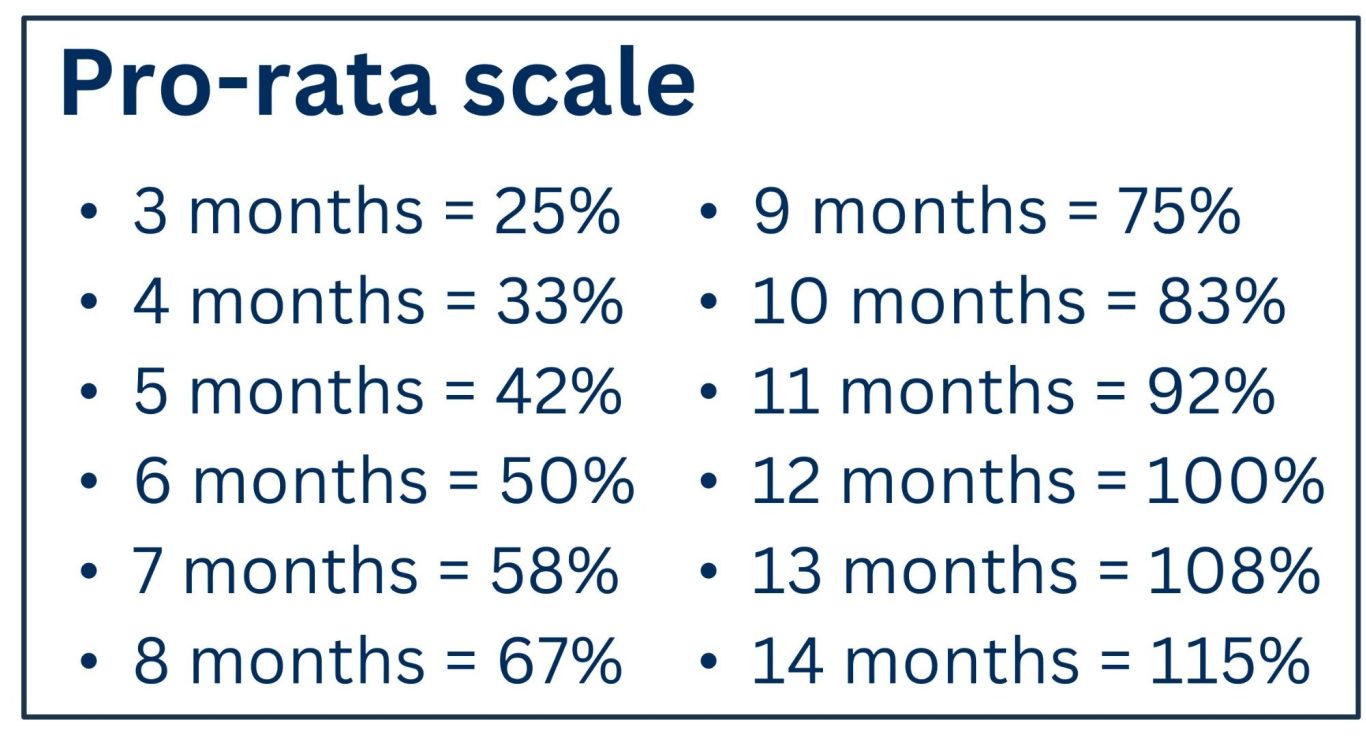Merit Information
Merit Increases
Annual merit increases are determined by Management and approval, along with Budget, the economy, and industry trends. However, merit increases are not guaranteed. Management will determine merit increases each year.
Management reserves the right to delay or cancel merit increases based on budgetary issues and the needs of the organization. On an annual basis, management will make these determinations.
If increases are given, they will be effective as announced by Human Resources following the completion of the annual review cycle.
An example of merit increases are calculated as a percentage of current salary, as shown below:
- Any employee rating “Highly Effective” may earn a 4% salary increase. If this employee currently earns $30,000, then an annual increase of $1200 would be given for a new annual salary of $31,200.
- Any employee rating “Effective” may earn a 3% salary increase. If this employee currently earns $30,000, then an annual increase of $900 would be given for a new annual salary of $39,000.
- Any employee rating “Developing, Unsatisfactory, which are Below Performance” would not earn an increase until standards are met and documented in a subsequent review.
Pro-Rated Merit Increases
Increases will be pro-rated based on an employee’s length of service at the time the annual increase is given.
Employees must have a minimum length of service of 3 months in order to be granted any increase.
Based on this, an employee who started (or received a salary increase) 2 months prior to the annual increase date will wait 14 months until the next increase cycle but will be pro-rated appropriately for that length of service. This pro-ration scale applies to employees that are within their first 3 to 14 months of service (as a new hire OR in a new position) at the time of the merit increase.

EXAMPLE: An employee was hired or promoted with an increase 6 months prior to the date of the annual merit increase. This employee is awarded a 3% salary increase. If this employee currently earns $30,000, that annual increase would be $900, however, the employee’s length of service would make him or her eligible for 50% of that amount for a total increase of $450 and a new salary of $30,450.
NOTE: A merit increase in no way implies a contract of employment for a specific term or any right of continued employment. There may be many factors that determine the amount of merit increases, such as available funds, cost of living, market conditions and performance. Merit increases are not automatic awards within the Annual Review Cycle. This process is in NO-WAY a guarantee for continued employment and do not impact the company’s at-will agreement for non-union employees. At-will means employees or Crosstown may end the employment relationship at any time with or without notice or reason.
©WorkforceConsultantsLLC. All rights reserved.
We need your consent to load the translations
We use a third-party service to translate the website content that may collect data about your activity. Please review the details in the privacy policy and accept the service to view the translations.